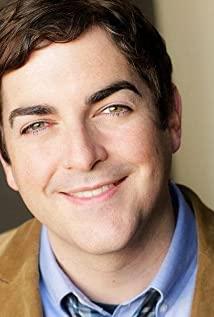Nick, the protagonist in "Thank you for smoking", is a lobbyist in the tobacco industry. He used his three-inch tongue to brainwash consumers time and time again, making them think that smoking is a cool behavior, and that they have the right to choose whether to smoke or not is a manifestation of personal free will.
However, do consumers really make the decision to buy cigarettes spontaneously?
In old movies, cool-dressed actors/beautiful and sexy actresses always smoke when there is no dialogue. The repeated smoking scenes in different movies make the public subconsciously feel that smoking is cool/sexy. Tobacco companies want consumers to feel that potential health risks may not be so important before maintaining a charming personal image.
The nicotine contained in tobacco is extremely addictive. If consumers just imitate the plot of the movie at the beginning to try to see what it feels like to smoke, when they are relieved and want to stop, they are most likely to experience irritability, depression, difficulty concentrating, headache, drowsiness, or gastrointestinal dysfunction. Symptoms. When the uncomfortable comes, many people will decide not to quit smoking.
Lobbyist Nick’s seemingly reasonable rhetoric and defending consumers’ right to choose freely are in essence just to allow tobacco companies to obtain more benefits. They don't care about the negative effects of tobacco on consumers' health at all.
In real life, many businesses use recurring advertisements and other propaganda strategies to invade our subconscious mind to brainwash us, and make us feel that we choose to buy those products.
Almost every time before a movie is shown in a movie theater, there will be an advertisement for a family to buy Coke and popcorn. The faces of men, women and children in the advertisement will be filled with extremely happy expressions after buying food. Sometimes the pleasant sound made when drinking Coke appears in the advertisement. This advertisement is to plant a concept in the minds of customers: If you have a Coke and popcorn family when you watch a movie, you will be happier. Our subconscious will gradually remember that Coke, popcorn and movies should be matched together from time to time. Without them, our movie-watching experience would be incomplete.
Trendy brands like Supreme create a feeling that consumers will become cool if they wear trendy brands. They use hunger marketing to make boys and girls who want to be at the forefront of fashion trends snap up clothes and accessories that don’t seem to be special in the early morning. Perhaps these boys and girls have already accumulated a mountain of clothes at home, but in order to integrate into the so-called trend culture, they are driven by adrenaline to snap up items that may not be needed. Trendy brands make potential customers feel that if they don't grab the latest styles, they won't be at the forefront of the trend. Trendy brand companies seem to not force customers to buy anything, but the intense and exciting purchase restrictions they create will make consumers instantly adrenaline and lose their only reason.
The dazzling array of skin care brands in the overwhelming advertisements without exception exaggerate the efficacy, making customers really think that using more expensive ones can keep you young forever. According to dermatologists, adequate cleansing, moisturizing and sun protection are sufficient. The magical effects that the ladies' brands boast at most stay on the surface and will not really penetrate into the skin to play a substantial role.
Consumers may feel that, no matter what, they decided to spend money on these products. But if there are no pervasive advertisements, trendy brands no longer use hunger marketing, and skin care products no longer exaggerate the effect, how many of us will really continue to choose to buy?
Merchants use viral advertisements/a large number of film and television works scenes to leave consumers' subconscious consumption to make life better, and then talk about choosing what to buy is the embodiment of our free will. Maybe when the account balance is insufficient, we realize how many things we bought without losing ourselves in the panic buying activity that just ended.
Perhaps the freedom we feel when shopping is just a cover for brand owners.
*There are more movies/TV series recommendations on my Weibo (aka Maruko who loves to read), welcome everyone to pay attention!
https://weibo.com/u/3179898575
View more about Thank You for Smoking reviews











